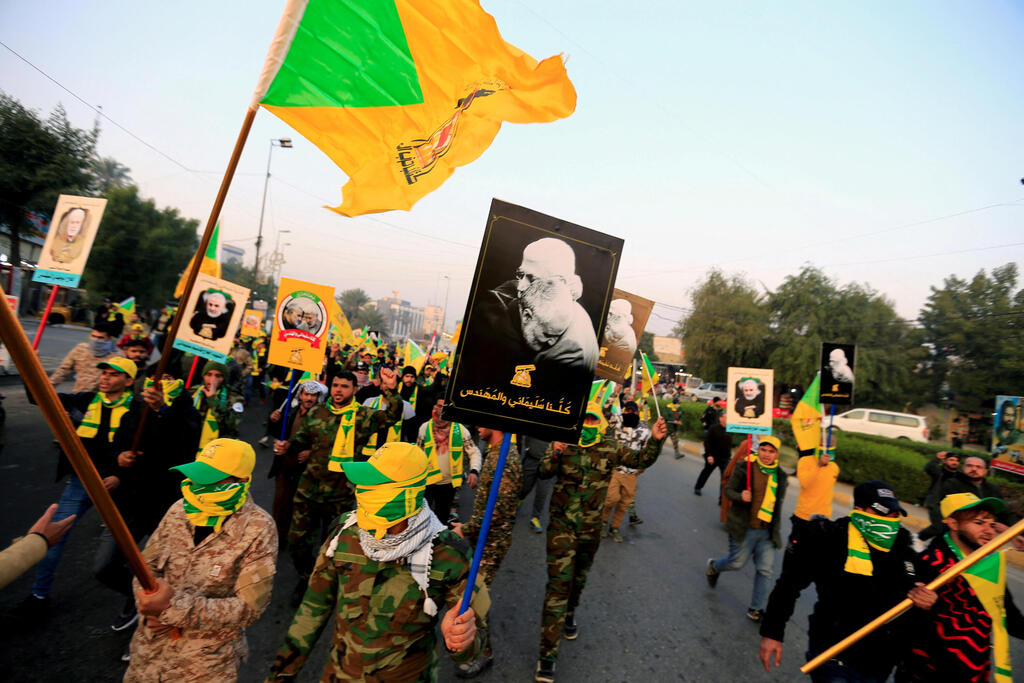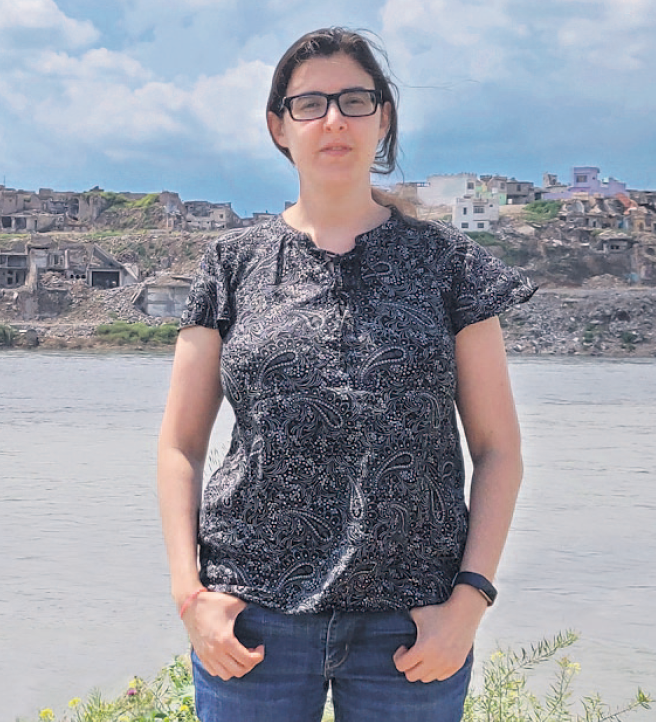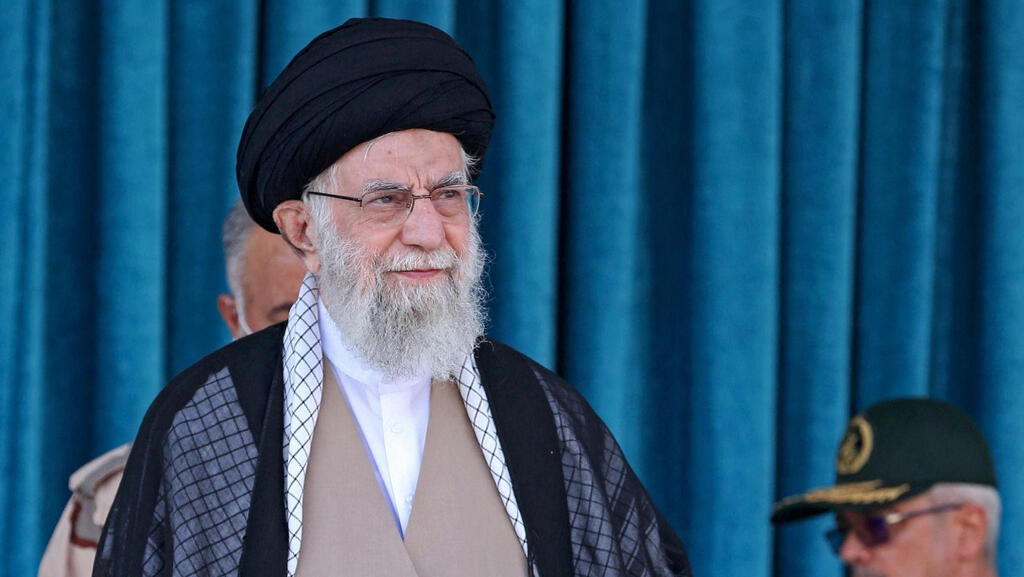Getting your Trinity Audio player ready...
From December last year until this March, Russian-Israeli PhD student at Princeton University Elizabeth Tsurkov was carrying out academic research in Iraq. In her words: “A country where pro-Iranian militias operate freely, carry out assassinations in broad daylight, blackmail people”.
Read more:
She is now, according to Prime Minister Benjamin Netanyahu, in the hands of the most dominant of those militias, Kataib Hezbollah, who reportedly kidnapped her in Baghdad four months ago. Kataib Hezbollah is designated as a terrorist group by the U.S., has conducted lethal attacks against American targets in Iraq and Syria and fought alongside other Iranian proxies to prop up the Assad regime. It has a long track record of kidnap and murder in Iraq and has made repeated violent threats against Israel.
Like its counterpart Lebanese Hezbollah, which helped train and arm the group following its formation in 2003, Kataib Hezbollah is funded and directed by the Islamic Revolutionary Guard Corps Quds Force, an organ of the Iranian government. Its management body includes representatives from the IRGC and Lebanese Hezbollah. It is also substantially funded by the Baghdad government and is an integral element of the Iraqi security forces. Despite that, its primary allegiance is to Iran and it has frequently refused orders from Baghdad and threatened Iraqi political leaders.
This means that even if Iraq’s Prime Minister Mohammed Al Sudani demands Tsurkov’s release, it is Tehran that will call the shots. Although he will likely have known of her kidnapping for the last four months, the fact that she remains in captivity may mean he has been overruled.
On the other hand, perhaps he has no interest in securing the release of an Israeli “enemy” because of the damage that would do to his reputation both among his own people and in Tehran. It is probable that fear of such disgrace trumps his relationship with the U.S., who will have pressured him to act from the time news of the kidnapping reached Washington. Recent publicity around Tsurkov might now flush him out, but that will be affected by whether she remains in Iraq or has been transferred to Iran.
4 View gallery


Kataib Hezbollah Iraqi militia gather ahead of the funeral of the Iraqi militia commander Abu Mahdi al-Muhandis, who was killed in an air strike at Baghdad airport, in Baghdad, Iraq, January 4, 2020
(Photo: REUTERS/Thaier al-Sudani)
Meanwhile, despite the well-advised muted responses from Jerusalem and Washington, we can be sure that significant efforts are going on behind the scenes to secure her release. My own role in the UK government once involved working to free British citizens kidnapped in Iraq, Afghanistan and elsewhere. It is a hugely delicate and risky business, both a race against time and demanding immense patience.
The first step the Israeli government will have taken upon learning of Tsurkov’s kidnap is to order preparations for a special forces rescue operation that could be launched if intelligence indicates a viable opportunity, whether in days, weeks or months. Despite Israel’s unparalleled capabilities in that hazardous world, there is nevertheless a low probability of a rescue operation.
Kataib Hezbollah have known from the start that such an option is on the cards when dealing with an Israeli hostage and will do everything they can to ensure both that her location is kept secret and, if a rescue attempt is mounted, it does not succeed.
I recall one operation when UK special forces were sent in but the hostage had been re-located just before they arrived by terrorists that were extremely security aware, much like Kataib Hezbollah. On a separate occasion, a British journalist was extracted but his interpreter and one of the special forces soldiers was killed in the raid.
Intelligence is critical not just to enable a potential rescue but also to work towards Tsurkov’s release by other means. Israeli intelligence services will be using their own resources and drawing on the assets of allied agencies, including the U.S. and UK, and partners in the Middle East. The aim will be to develop the fullest possible picture of Tsurkov’s location, which might change frequently, the kidnappers directly involved in holding her and those who can bring official and unofficial influence to bear.
No doubt there will also be under-the-radar intelligence and diplomatic contact with Iraqi officials and informal contacts perhaps directly or through liaison agencies.
It could be, however, that Tsurkov’s best chance is her Russian passport. Moscow and Tehran have close relations, strengthened by Iran’s supply of killer drones to Russian forces in Ukraine. That does not mean Putin will seek her release or that the ayatollahs will oblige. If he does decide to call in a favour though, it will not be out of concern to save the life of a fellow Russian or an Israeli, but to posture as an international statesman and gain some form of concessions.
In their statements, Kataib Hezbollah have referred to Tsurkov as a “Zionist enemy”. A spokesman for the think tank she has been working with, New Lines Institute, says: “She is actually not a Zionist at all. She strongly criticises Israeli security policies and holds deep empathy for the people of the Middle East”.
Unfortunately, that won’t cut any ice with Kataib Hezbollah or any other extremists holding her. She is an Israeli and a Jew who is studying in the U.S. and therefore three times an enemy; they only care about her political position on Israel to the extent they can exploit it.
I dealt once with a situation where three aid workers were kidnapped and later murdered in Iraq. They were not the enemy either, in any sense we can recognise. They had no connection to any government and were in the country only to provide direct help to the people.
 Colonel Richard KempPhoto: Courtesy
Colonel Richard KempPhoto: CourtesyHowever, I would put Tsurkov’s chances of survival much higher than those three poor men. They were kidnapped by an Al Qaida group led by the notorious Abu Musab al Zarqawi, whose sole purpose was to induce terror by filming their beheadings.
Kataib Hezbollah are also vicious terrorists, but their actions are controlled by Tehran which has its own strategic agenda. An Israeli woman is a significant prize for the ayatollahs and it is likely they will want to use her as a bargaining chip, perhaps in exchange for Iranian captives or for concessions from the U.S., which has been their usual demand for releasing foreign hostages. Unfortunately for Elizabeth Tsurkov, the leadership in Tehran may want to play a waiting game that involves her long-term incarceration.
- Colonel Richard Kemp is a former UK Armed Forces commander
First published: 23:41, 07.14.23




